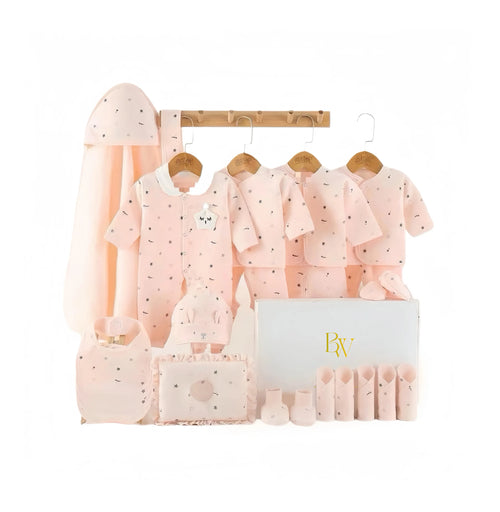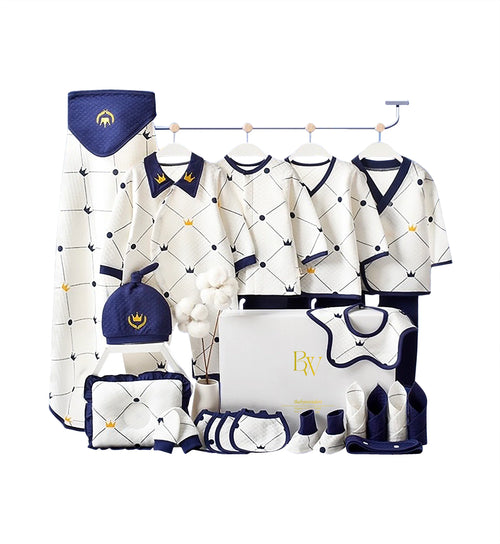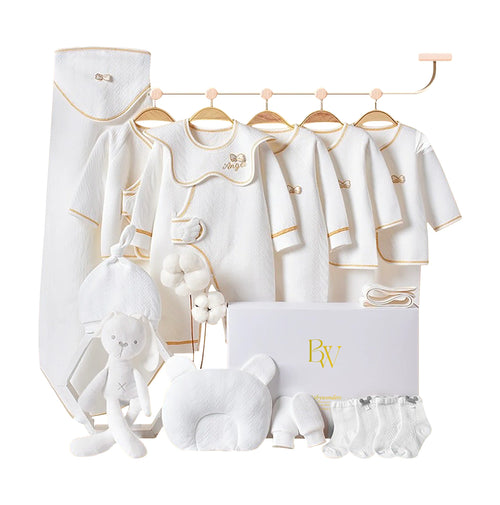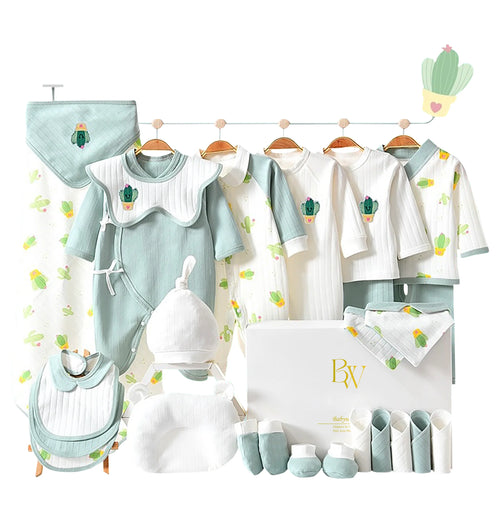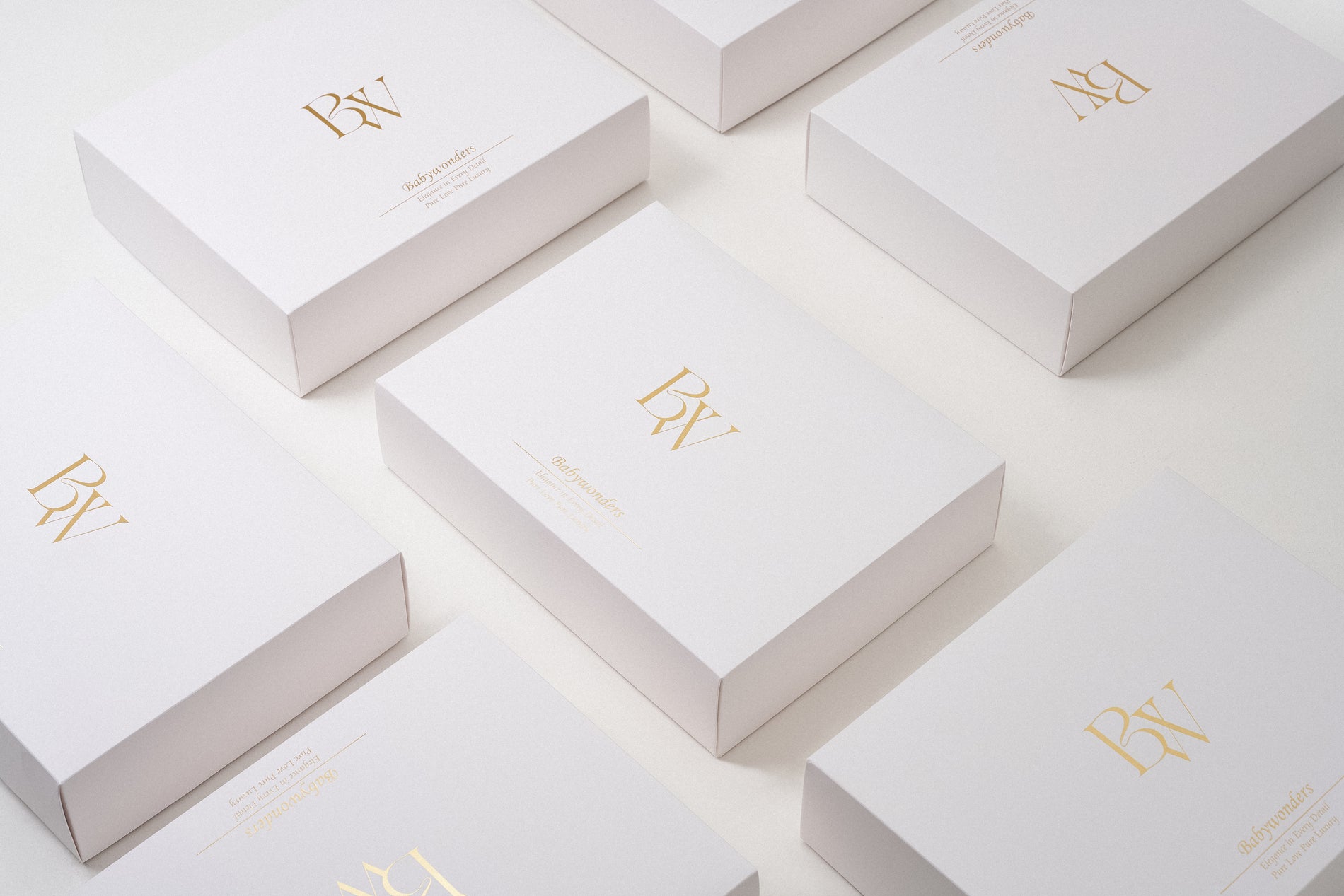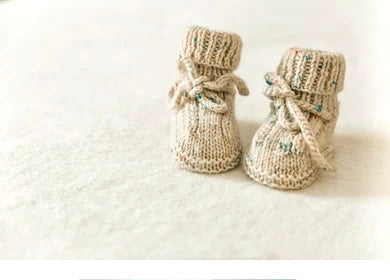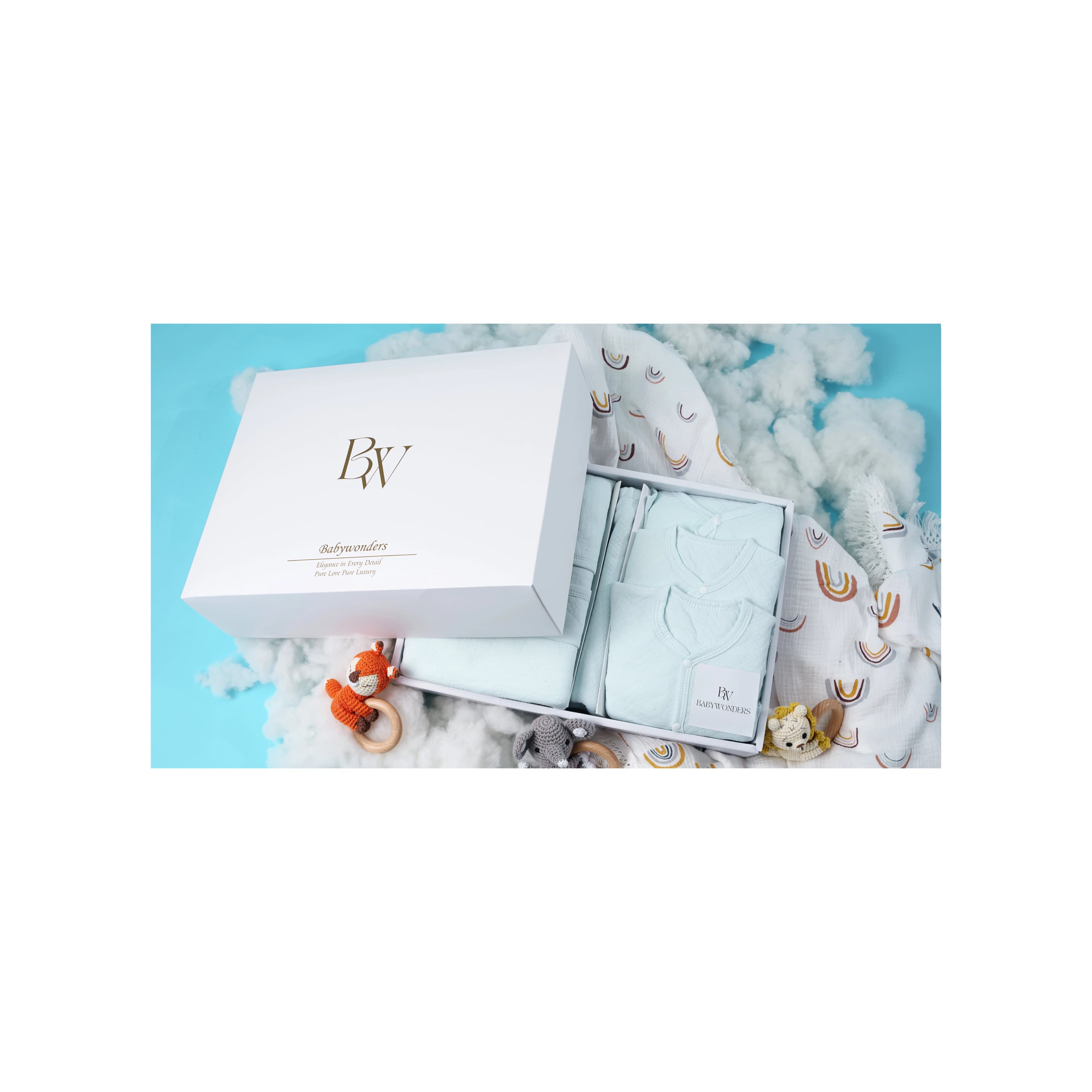Whenever one is pondering on which fabric to buy for a newborn baby, whether to go for the organic or the synthetic type? These two types of fabrics both come with their respective advantages and disadvantages in terms of providing comfort and skin to the baby and environmental friendliness. This is usually due to the fact that parents want the best for their newborn, which raises the question of whether organic material such as cotton should be used or synthetic material like polyester. Therefore, in this article we are going to explore the differences between the organic and synthetic materials in relation to which one is better for the fabrication of newborn gift sets.
Organic Materials: Softness and Comfort for Sensitive Skin
Organic cotton used in manufacturing of baby clothes is preferred for their softness and gentleness on the skin particularly on a newborn’s skin. Organic cotton does not involve the use of the risky pesticides or chemicals as other types of cotton; therefore, organic cotton is highly appropriate for use when dressing babies with skin sensitiveness or allergies. Organic cotton fibers are softer and more breathable than convention, which will make one comfortable throughout the day. And, as they are produced employing an eco-friendly agriculture practice, these fabrics are eco-friendliness than the conventional fabrics. For parents who value skin of their baby as well as the quality of environment: using organically operating materials provides comfort to each touch.
Synthetic Materials: Durability and Practicality for Everyday Use
On the flip side, synthetic materials such as polyester, nylon, and acrylic are commonly used for their cost-effectiveness and durability. They are too much tested for heavy-duty applications to withstand high wear and tear; thus, they are highly durable even after several washes. Synthetic fabrics are often also cheaper to produce than their organic counterparts, making them a more affordable option for many consumers. They also dry more quickly than organic materials, which is convenient for busy parents. However, synthetic fabrics may not always be as breathable as natural fibers, which could be an issue for newborns’ sensitive skin, as it can trap heat and moisture.
Breathability and Temperature Regulation: A Key Factor for Newborns
When it comes to picking out the right material for newborn clothes, breathability is key. Kogan: The lack of airflow in synthetic materials makes it harder for babies to maintain their body temperature, whereas organic materials, such as organic cotton, allow free air to circulate around them. This is especially vital for babies, who cannot control their body temperature as well as older kids. The natural fibers of organic cotton also soak up moisture, keeping babies cooler in hot temperatures and warmer in colder climates. On the other hand, many synthetic materials can be durable, but they often prevent air circulation. While synthetic materials like polyester can trap heat and moisture, which could cause overheating or irritation, they’re not the best choice for newborns in hotter climates.
Environmental Impact: The Sustainability Debate
Let's go ahead with some major differences between organic and synthetic materials. Organic fabric is made from eco-friendly farming methods that do not cause the use of toxins, pesticides, and artificial fertilization. These are also safe for babies, as they help protect the environment by promoting sustainable farming practices by reducing chemical exposure. Synthetic materials, on the other hand, are often made from petrochemical products, leading to plastic pollution and the utilization of non-renewable resources for production. Natural fabrics, on the other hand, biodegrade and cause less damage to the environment in the long run, although synthetic fabrics may last longer.
Chemical Exposure: A Consideration for Newborn Safety
Chemical exposure is a major concern for many parents when purchasing clothing for their newborns. Synthetic fabrics are also treated with a variety of harmful chemicals, including flame retardants, dyes, and formaldehyde, during their production. Such chemicals could irritate a newborn’s sensitive skin or cause allergic reactions. On the other hand, organic cotton is grown without harmful chemicals, so they're safer around babies. Because organic fabrics do not have chemicals infusing them, they do not expose the baby to the risk of skin irritation, rashes, or allergies, thus making them healthier for newborns, particularly newborns with sensitive skin or pre-existing conditions.
Cost and Availability: Finding the Right Balance
Organic fabrics are often perceived as both the more healthful and environmentally conscious option compared to synthetic fabrics, but they do come with a higher price tag. Organic cotton and other organic materials may cost many times more than synthetics, which may discourage organic clothing sets for many families. Synthetic fabrics, on the other hand, are often more readily available at a lower cost, enabling parents to buy larger quantities of clothes at a more economical price. But many parents, especially those concerned about skin sensitivities and environmental sustainability, are willing to shell out more for organic fabrics for their newborns.
Durability and Maintenance: Long-Term Benefits of Synthetic Fabrics
When it comes to durability over the long term, synthetic fabrics are likely to survive longer than organic materials. Synthetic fabrics are generally more resistant to shrinking, fading, and wear, making them a good choice for high-use items like socks and baby bibs. They are also easier to maintain, with needs such as ironing or special washing care going out of style. Organic cotton might be soft and breathable, but it tends to shrink more readily after washing than a synthetic blend, and it won’t hold up nearly as well with extensive use. For parents who value sustainability and comfort over long-term durability, however, organic fabrics may ultimately be worth the wear and tear.
Which is Best for Newborn Gift Sets?
In the end, choosing between organic or synthetic materials for newborn gift sets is contingent upon the individual needs and preferences of the parents. If comfort, breathability, and impact on the environment are your priorities, then organic fabrics, including organic cotton, are the best. They’re a gentle, chemical-free alternative that is soft on a baby’s sensitive skin and is more sustainable long term. On the other hand, everybody knows that forms of money, longevity, and tussocks are more significant than the truth that synthetic textures are normally durable and economical. Which is better depends on what is most important for the baby’s clothing.
Conclusion
When it comes to potential newborn gift sets made from organic vs. synthetic materials, they both come with unique pros and cons. Natural fabrics such as cotton are soft, eco-friendly, and chemical-free, making them a great and sustainable option for your little one. Synthetic fabrics are generally durable, inexpensive, and easy to clean but may not be as soft and breathable as those made of organic fabrics. In the end, it comes down to the personal preferences of the parents and how much they value comfort, cost, and environmental impact. No matter which material you choose, it’s crucial that you consider the baby’s comfort and skin health first when making your decision.
